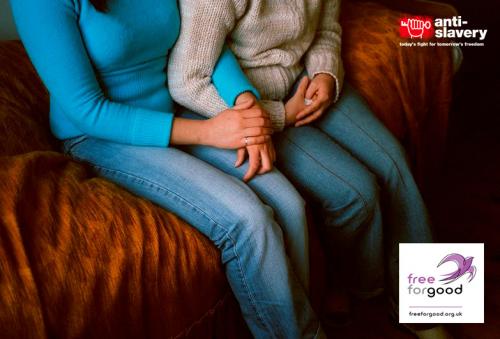Why we back the Slavery Victim Support Bill
Anna Sereni on a new Modern Slavery Victim Support Bill that would afford protections to some of the most vulnerable people in the UK.
The British Government estimates that over 13,000 people, including children, in the UK are victims of modern slavery. The 2015 Modern Slavery Act is championed as an historic piece of legislation in progressing the UK’s fight against modern slavery.

The focus on prosecution remains central to the Act. Catching the traffickers, simplifying slavery offences to make prosecuting easier, increasing sentencing and introducing trafficking prevention orders all remain vital in our attempts to bring about the most effective response to slavery.
However, when it comes to protecting the victims and the prevention of slavery, the Act remains weak.
Currently, once victims escape slavery they encounter a number of additional challenges.
The Act doesn’t legally guarantee the kind of support the victims receive. The result is that the care victims receive is inconsistent. They might be lucky to find a good safe house with professional care, but others remain in a substandard accommodation that is not suitable for vulnerable, traumatised people.
Currently the victims are guaranteed to receive support only for 45 days during so-called ‘reflection period’, whilst their case is being assessed by the authorities to determine whether they indeed have been a victim (the government announced that it will be lengthened to 90 days, but it’s unknown when it will be implemented).
After the initial period of 45 days, even if they receive a decision identifying them as a slavery victim, the specialised support ends, and the extra struggle for the victims begins. They have to find other accommodation and means to survive.
Some simply become homeless, making them vulnerable to traffickers again who at least can offer them a roof over their heads.
Those from abroad try to regulate their immigration status, many apply for asylum out of fear of going back to their own countries and facing the people and authorities complicit in their exploitation, as well as stigma, shame and even honour killing.
Unregulated immigration status is a big problem, as it stops people from finding a job or receiving benefits; and instead leaves them with long legal battles and constant uncertainty on the top of dealing with their still fresh traumas. Our partners from the Snowdrop Project describe it well in a recent blog.
Not only are victims likely to become more vulnerable but the chances of prosecuting perpetrators considerably reduces. Criminal cases against traffickers often rely on testimonies from the victims, but who would want to work with authorities that can’t guarantee basic living needs, let alone make them feel safe from their traffickers?
Source:Anti-Slavery
- 420 reads
Human Rights
Fostering a More Humane World: The 28th Eurasian Economic Summi

Conscience, Hope, and Action: Keys to Global Peace and Sustainability

Ringing FOWPAL’s Peace Bell for the World:Nobel Peace Prize Laureates’ Visions and Actions

Protecting the World’s Cultural Diversity for a Sustainable Future

Puppet Show I International Friendship Day 2020

